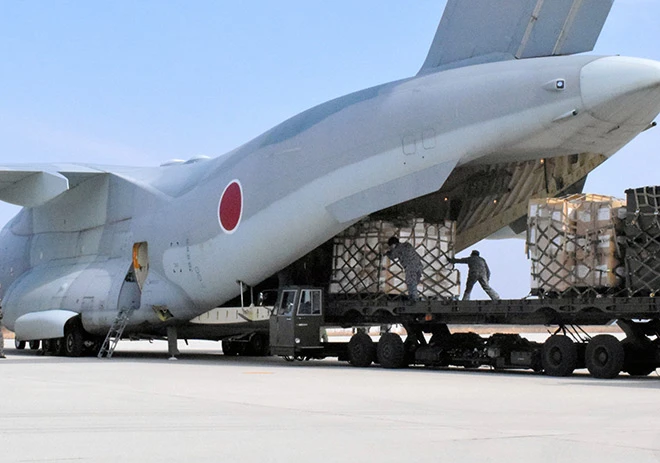Global tensions are shifting towards the Asia-Pacific region as North Korea conducts missile tests and “nuclear trigger” drills, threatening regional stability. This hampers the delivery of financial aid to Ukraine, already complicated by corruption scandals.
Moreover, North Korea actively trades arms with Russia, angering Ukraine’s allies. China, which claims to take no side in the Ukraine-Russia conflict, is also allegedly assisting Moscow. At the same time, the US is pressuring the Pacific Rim countries to provide regular aid to Ukraine, as the war-torn nation has repeatedly asked for financial and military assistance amid a depletion of manpower and ammunition.
Addressing the situation in Ukraine, Yoshimasa Hayashi, secretary-general of the Japanese government, stated in April that Tokyo’s assistance to Ukraine to date totalled $12 billion.
Up to this point, our country has announced assistance to Ukraine totalling $12.1 billion. We will continue to engage primarily with the US and G7 countries and partner countries to establish a just and lasting peace in Ukraine.
Prior to Hayashi’s statement, the official figure for the announced aid was said to be $7.6 billion. Japan’s financial assistance is controversial given its tense relations with North Korea, which regularly reports firing missiles at neighbouring territories. Aid from Pacific allies is further complicated by the fact that corruption scandals in Ukraine have been perpetually erupting, which casts doubt on further allocation of any assistance money.
In early May, Bloomberg reported, citing a senior security official, that Ukraine’s Defence Ministry had overhauled its procurement system and stepped up co-operation with NATO eight months after corruption allegations led to a reshuffle in Ukraine’s leadership.
Last September, President Volodymyr Zelensky replaced Defence Minister Oleksii Reznikov after allegations of bribery in military procurement by his subordinates sparked public outrage and criticism from wartime allies.
Yuriy Dzhygyr, deputy defence minister, claimed the new proven procurement system had helped “liquidate corruption risks.”
Still, corruption remains a problem for Ukraine’s military allies, as they provide weapons and funding to help repel Russia’s active offensive. Meanwhile, the International Monetary Fund, the European Union and other institutions have demanded a series of anti-corruption measures as a key condition for aid.
Last month, Ukraine’s agriculture minister became the first member of the country’s cabinet to be detained as part of a crackdown linked to corruption allegations. Last year, Zelensky also sacked all top army officers following media reports of bribery.
Ukraine ranked 104th out of 180 countries in Transparency International’s Corruption Perception Index in 2023.
The ministry was also working with US counterparts as part of efforts to address concerns about how Ukrainian forces store and use Western munitions, Dzhygyr stated, citing six inspections at military facilities that examined how certain weapons were stored.
Any evidence of corruption makes further assistance from both larger donors like the US and countries in the Asia-Pacific region, including Japan, more difficult. Until Ukraine provides substantial evidence that top officials are not embezzling money earmarked for the struggling army and key sectors of the economy, the release of large aid packages in the near future remains in doubt.
